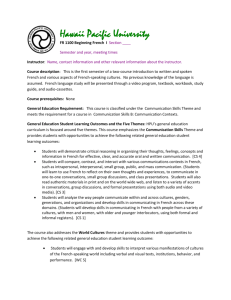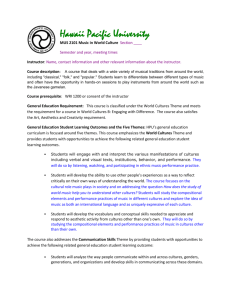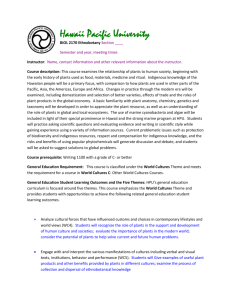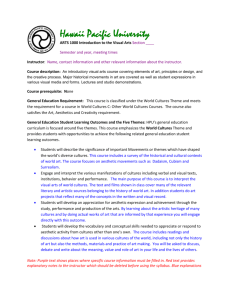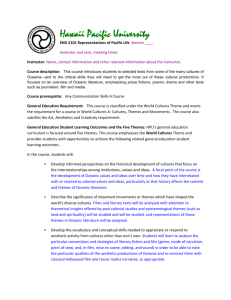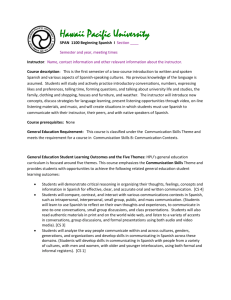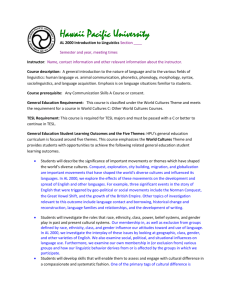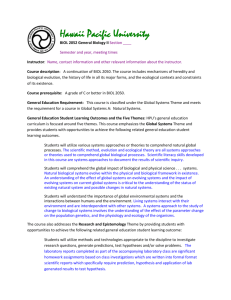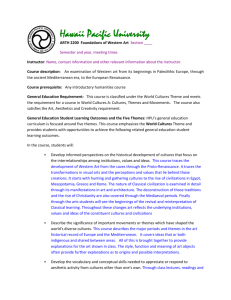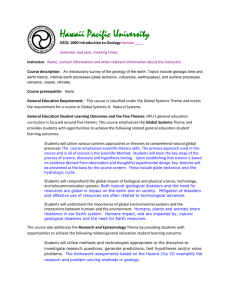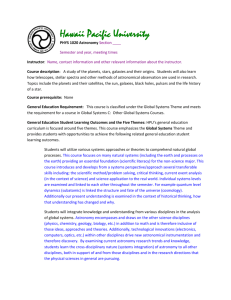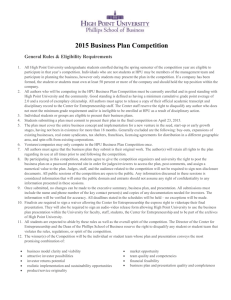Hawaii Pacific University
advertisement
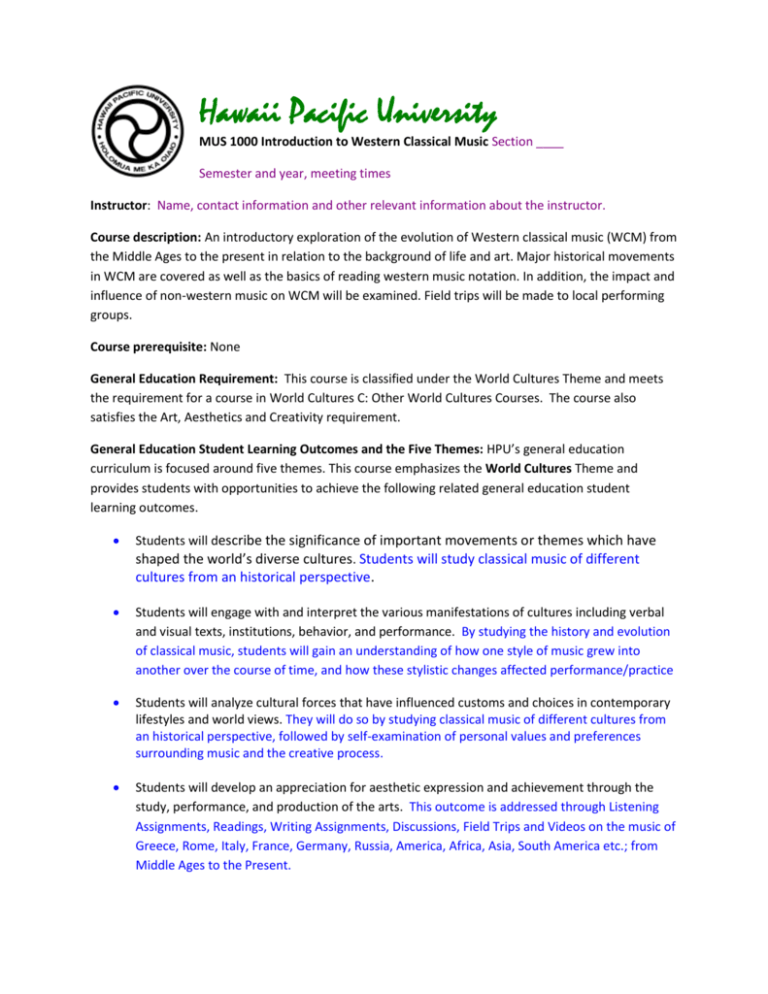
Hawaii Pacific University MUS 1000 Introduction to Western Classical Music Section ____ Semester and year, meeting times Instructor: Name, contact information and other relevant information about the instructor. Course description: An introductory exploration of the evolution of Western classical music (WCM) from the Middle Ages to the present in relation to the background of life and art. Major historical movements in WCM are covered as well as the basics of reading western music notation. In addition, the impact and influence of non-western music on WCM will be examined. Field trips will be made to local performing groups. Course prerequisite: None General Education Requirement: This course is classified under the World Cultures Theme and meets the requirement for a course in World Cultures C: Other World Cultures Courses. The course also satisfies the Art, Aesthetics and Creativity requirement. General Education Student Learning Outcomes and the Five Themes: HPU’s general education curriculum is focused around five themes. This course emphasizes the World Cultures Theme and provides students with opportunities to achieve the following related general education student learning outcomes. Students will describe the significance of important movements or themes which have shaped the world’s diverse cultures. Students will study classical music of different cultures from an historical perspective. Students will engage with and interpret the various manifestations of cultures including verbal and visual texts, institutions, behavior, and performance. By studying the history and evolution of classical music, students will gain an understanding of how one style of music grew into another over the course of time, and how these stylistic changes affected performance/practice Students will analyze cultural forces that have influenced customs and choices in contemporary lifestyles and world views. They will do so by studying classical music of different cultures from an historical perspective, followed by self-examination of personal values and preferences surrounding music and the creative process. Students will develop an appreciation for aesthetic expression and achievement through the study, performance, and production of the arts. This outcome is addressed through Listening Assignments, Readings, Writing Assignments, Discussions, Field Trips and Videos on the music of Greece, Rome, Italy, France, Germany, Russia, America, Africa, Asia, South America etc.; from Middle Ages to the Present. Note: Purple text shows places where specific course information must be filled in. Red text provides explanatory notes to the instructor which should be deleted before using the syllabus. Blue explanations above should be rephrased by the individual instructor to reflect the specific approach in that section of the course. Course specific outcomes below are an example and may also be rephrased or modified by the instructor. Course-Specific Student Learning Outcomes for MUS 1000 Introduction to Western Classical Music MUS 1000 is designed so that students will: Deepen an understanding and appreciation for WCM through live performance Deepen an understanding and appreciation for WCM through the use of recordings, CD-Rom, videos, and/or the Internet Explore WCM from a historical and cultural context Explore non-western music and its impact and influence on WCM of today Approach the study of WCM from a global perspective For the rest of these required syllabus items see the details in the faculty handbook. Delete this note once the syllabus is complete. For online courses there are some additional requirements given at this link. Texts List textbooks with ISBN’s and include this language as well All textbook information (pricing, ISBN #, and e-books) for this course can be found on the HPU Bookstore website: hpu.edu/bookstore. If you have any questions regarding textbooks, please contact the HPU Bookstore at: Phone: 808-544-9347 Or e-mail: jyokota@hpu.edu mmiyahira@hpu.edu Assignments and mode of evaluation Summary of important dates and deadlines (if the schedule is a separate document and due dates are not given with the description of the assignments). Class rules and policies (including regarding attendance, late work and academic dishonesty) Schedule of events (may be attached separately)
